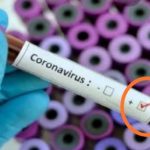The #Covid-19 pandemic presents a global health emergency and an unprecedented economic crisis. In addition to the loss of life and productivity directly attributable to COVID-19, the pandemic poses risks to human capital through several other pathways, key among which is the disruption in the provision of essential primary health, education, and community services.
A recent World Bank report estimates that the level of both schooling and learning will fall due to COVID-19, resulting in a loss of between 0.3 and 0.9 years of schooling, adjusted for quality. Measures taken to contain the pandemic are also unleashing severe consequences for livelihoods and food security, and the stress of insecurity, isolation, and quarantine are associated with an increase in depression and domestic violence. These effects are exacerbating pre-existing inequalities, especially for vulnerable populations including women and girls who bear a disproportionate impact from disruptions in core services.
Simulated results from the 2020 Human Capital Index report show that without any remediation, #Covid-19 impacts could leave an entire generation behind, and a decade of human capital progress reversed. The implications for future productivity are sobering. In 20 years, roughly 46 percent of the work force in a typical country (people ages 20-65) will be composed of individuals who were either in school or under the age 5 during the Covid-19 pandemic. Protecting investments in the human capital of this generation is critical.
The emergence of new, more transmissible variants has led to further large-scale shutdowns and redoubles the urgency of vaccination. Recovering from setbacks in human capital outcomes will depend greatly on the successful deployment of vaccines. The re-opening of early childhood development services and schools is essential to a recovery in learning and years of schooling, and to caregivers’ return to work. Restored access to health services and relief to overburdened health systems are needed to restore preventive health services and control infectious diseases and non-communicable diseases.
With a re-opening of the economy, there will be an increased availability of jobs, improving labor productivity, helping to restore remittances, address supply disruptions, and leverage decreases in poverty and hunger.
Vaccine deployment will require a national level “whole of society” approach, including; mobilizing financing; leveraging private and public actors within the health system; infrastructure support for vaccine delivery including energy solutions for cold chains and digital information systems to monitoring delivery; and civil society support for delivery, communication, and setting behavioral norms.
While vaccination coverage expands, risk reduction measures must be maintained. This includes social distancing, face and eye protection, hand and surface sanitation, a preference for outdoor activities, and the avoidance of large superspreading events.
Finally, international solidarity and cooperation are critical. From clinical trial collaboration to technology transfer, from procurement and logistics assistance to implementation support, COVID-19 vaccination requires dedicated national and international coordination across a wide range of stakeholders as illustrated in this theory of change. Financial assistance, including debt forgiveness and concessional financing, will be important to ensure access to vaccines and recovery of human capital, particularly in low-income countries.
These international efforts are needed to combat vaccine nationalism and ensure equitable global access to vaccines. According to a recent RAND estimate, the unequal allocation of COVID-19 vaccines could cost the global economy up to $1.2 trillion a year in GDP. A nationalistic stance toward the pandemic will only prolong this global health and economic crisis.
That’s why the World Bank Group is building on its initial COVID-19 response with $12 billion to help poor countries purchase and distribute vaccines, tests, and treatments, and strengthen their health systems to ensure the vaccines reach everyone, especially the most vulnerable. World Bank financing will complement and work alongside other efforts, such as COVAX, a global partnership to promote equitable access to vaccines.






